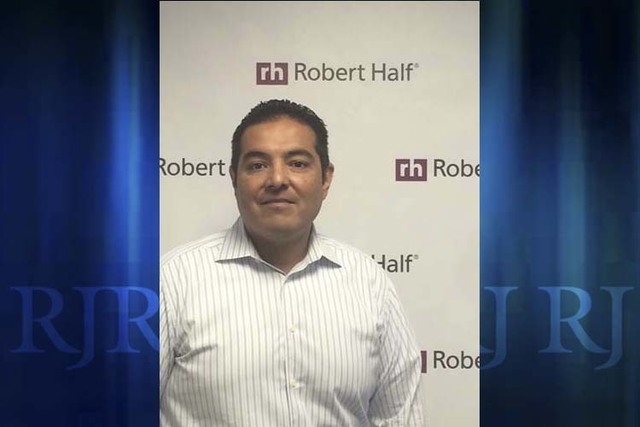Bosses offer ways to ease employee time crunch
The phone is ringing off the hook, the boss is waiting for a report that was due more than an hour ago and your inbox is being inundated with messages that await your response.
Most of us have been there.
Three Las Vegas executives have some ideas on how to lower the stress and improve the outcome.
The key to ensuring you get everything done is to prioritize what’s important, said Tom Stimmel, vice president of operations for Las Vegas-based Cobalt Data Centers.
“If something does come up, I have to look at it and see if it’s operationally effective, if it affects the operation of our facility or if it’s something that affects one of our customers,” he said. “If it doesn’t affect a customer or our facility, I’ll put it off until later.”
Each morning, Stimmel starts by checking his Microsoft Outlook calendar to see what he has planned for the day.
“After I see what I have planned, I have the pattern for that day in my head and can go back and prioritize if something else comes up,” he said.
Stimmel began his telecommunications career more than 40 years ago, and time management has been an issue in nearly every company and position he’s held.
“There are so many distractions during the day, either planned or emergencies that you have to handle,” Stimmel said. “They throw a kink into anything you’ve planned for the day and you have to manage those outside influences or distractions so you can get what you need to get done before the day gets done. The key is to prioritize.”
Ultimately, Stimmel said, individuals need to test-run time management practices so they can find which ones suit them best.
“There’s a myriad of time management tools and philosophies,” he said. “But each individual has to look at what works for them such as carrying around a calendar, an app on their iPhone or integrating everything into Microsoft Outlook.”
When addressing time management with employees, Stimmel said, companies need to explain their end goal. That way, everyone is on the same page.
“The path that the company is taking has to make sense to everyone in the organization,” he said. “Sometimes some time management skills don’t work for certain aspects of the company and you have to come up with a different agenda. Look at the goals of each individual department and their needs to instate a time management program.”
Like Stimmel, Damian Garcia, the Las Vegas and Reno metro market manager for Robert Half Management, said having access to work email and calendars on mobile devices like smartphones lets employees see tasks they need to complete each day wherever they are.
“There was a time when technology was limited, but those days are behind us,” he said. “Embrace technology on smartphones and tablets so you can take advantage of the moment when you’re not tethered to your desk.”
Garcia added that employees should have calendars, helpful apps, and company software and programs on their smartphone or tablet computers to access them remotely.
“Company software can be very helpful and with increased security on smartphones and tablets, more organizations are open to have users gain access off-site,” he said. “It’s always extremely helpful when I have my work desktop available to me on my phone.”
Garcia said Robert Half Management surveyed more than 2,100 chief financial officers about time management and found that 35 percent take greater advantage of technology and 35 percent delegate more responsibilities to be more productive.
“Delegation is about assigning the right task to the right person,” Garcia said. “It can be dangerous if you’re simply giving someone busywork that you don’t have time to do. However, you may find that someone on your team has experience to get the task done accurately and efficiently.
“Utilize all support staff, know what they enjoy doing and you’ll be saving time yourself and increasing retention.”
Garcia said prioritizing all tasks, including making a list daily, could help employees be more productive.
“It starts with taking a step back and analyzing your day by looking at what you’re doing versus what you should be doing,” he said. “Add a task, combine a task or eliminate a meeting; find a way to get it done. Be consistent, find a routine or pattern so you’re using your time effectively.”
Rob Mallery is head of Organizational Development for Originate Inc., a Las Vegas-based company that brings together software, product design and the ability to finance projects for those building software products or companies. He has many responsibilities as he’s in charge of recruiting and team-building for the company’s seven offices.
Mallery said his biggest piece of advice for managing time is to not get distracted by the Internet.
“Be mindful of not spending time on things that misfocus you, such as the brain drain — the digital world of the Internet,” he said. “Also, have a goal during a block of time and set goals around discrete parts of your day.”
Cutting meetings and telephone conversations by two to five minutes can also help more effectively manage your time, Mallery said.
“I set a lot of alarms on my phone to make sure I’m on track as far as scheduling and it helps me to be more mindful of my schedule,” he said. “I also try to get one or two things done before I check my email. You don’t have to have your inbox open all the time; focus on having set blocks of time dedicated to answering emails instead of answering them all day.”
Mallery acknowledged that it’s easy to get caught up in the digital world. But he said physically performing tasks, instead of sitting on the computer responding to emails all day, lets employees be more mindful of their time.
“Get physical, whether a meeting, phone call or actual interaction as opposed to digital interaction,” he said. “It’ll make you feel like you’re getting more done because you’re physically connecting with someone.”
Making small changes to how you’re spending your time, Stimmel said, will produce better results in the long run.
“There’s an old cliché; plan your work and work your plan,” he said. “Get into the habit of setting yourself up for success. If you don’t change how you do things, you’ll always continue to do what you’ve always done and that doesn’t lead to any success.”


















